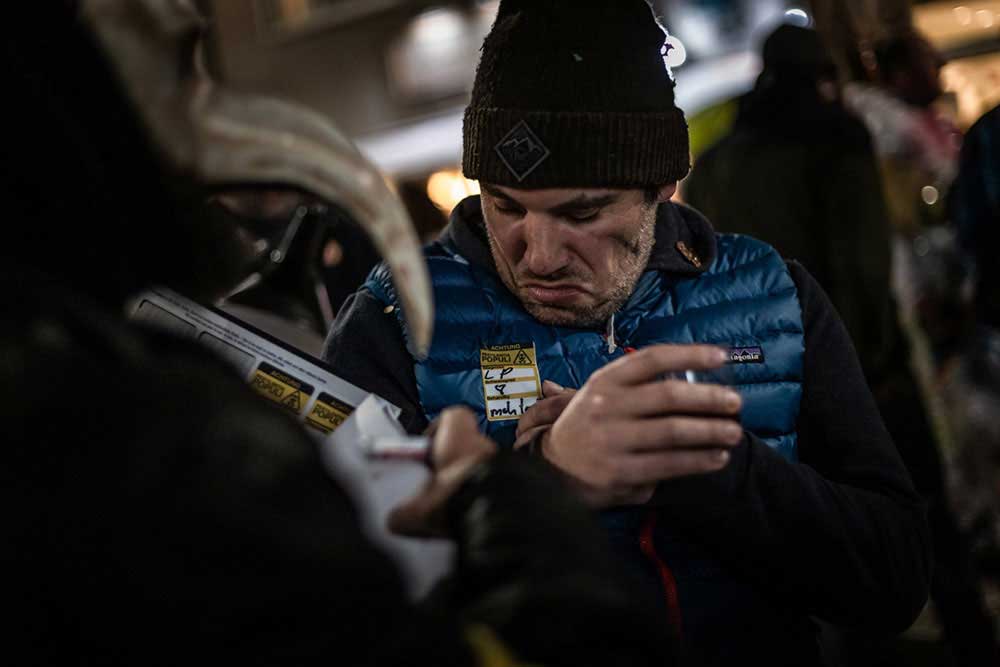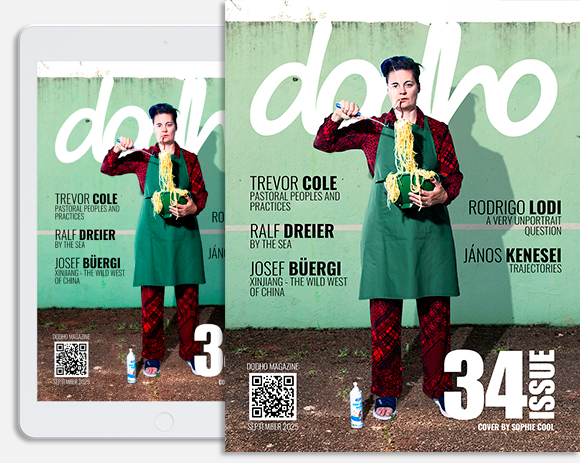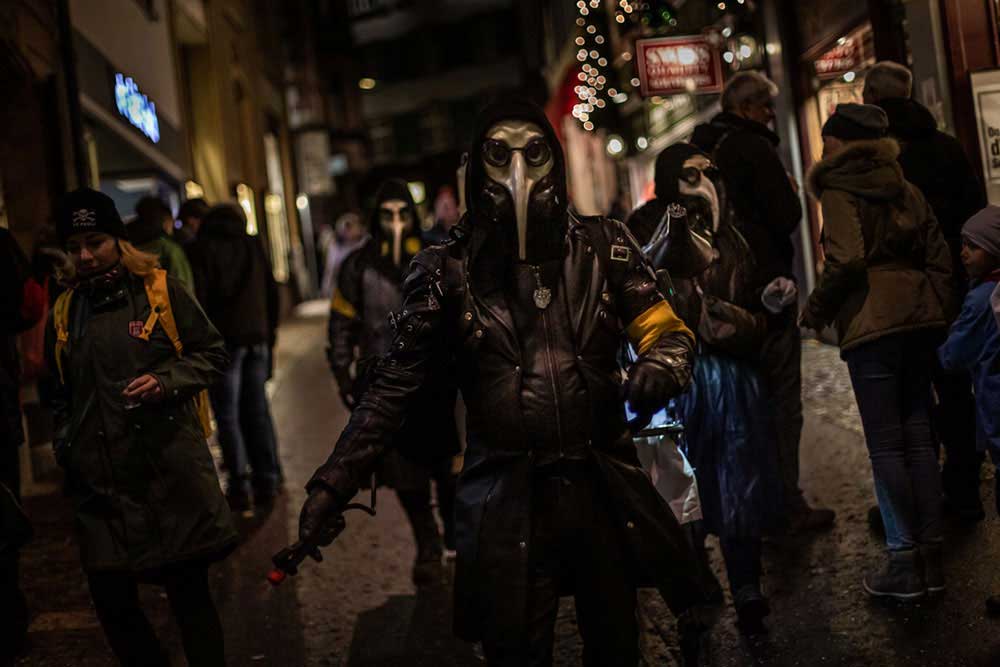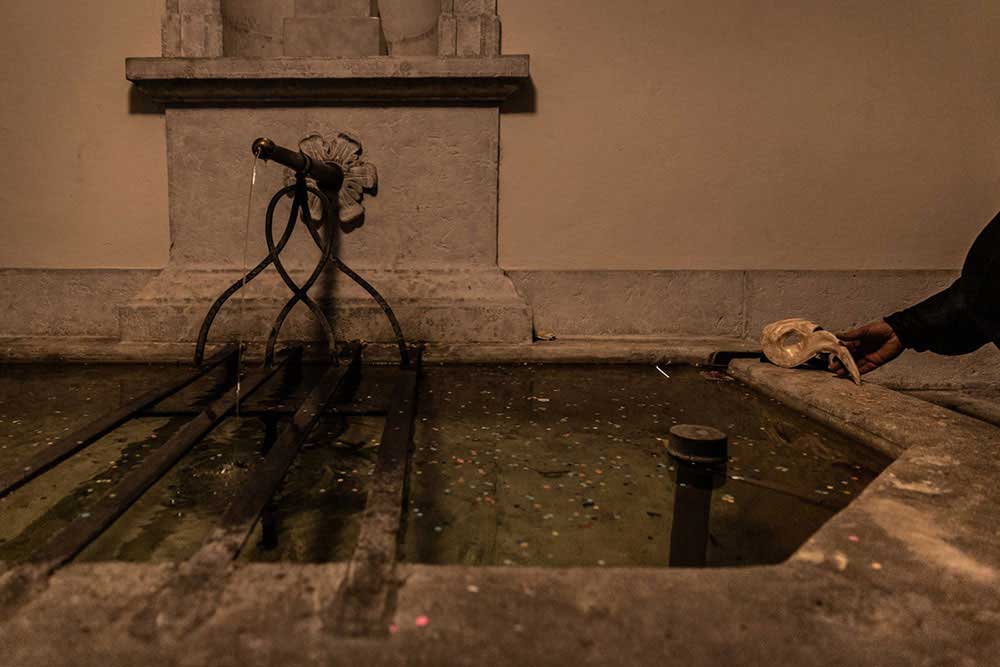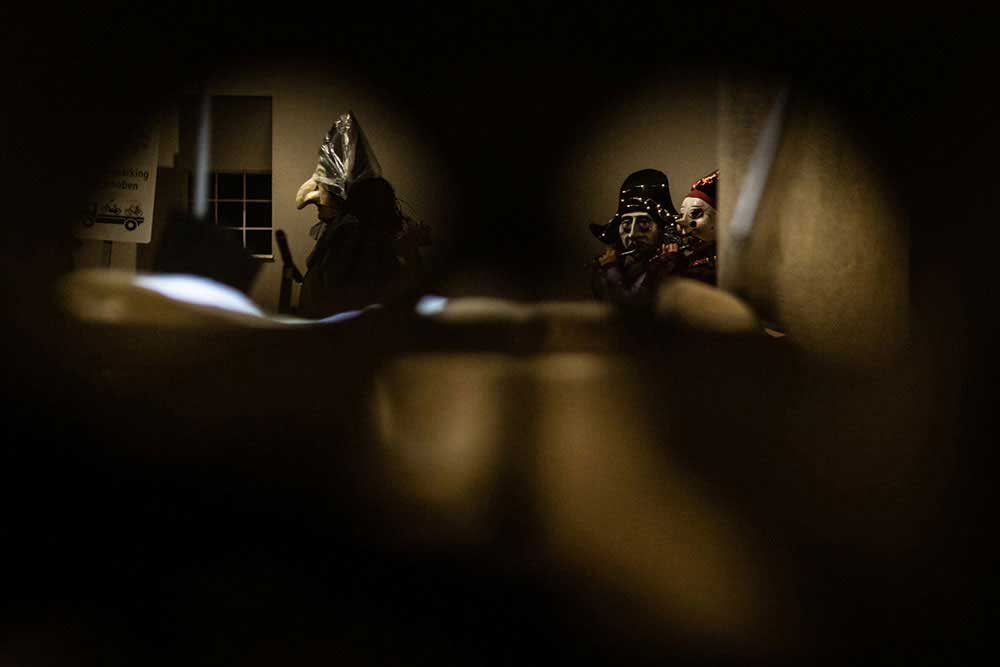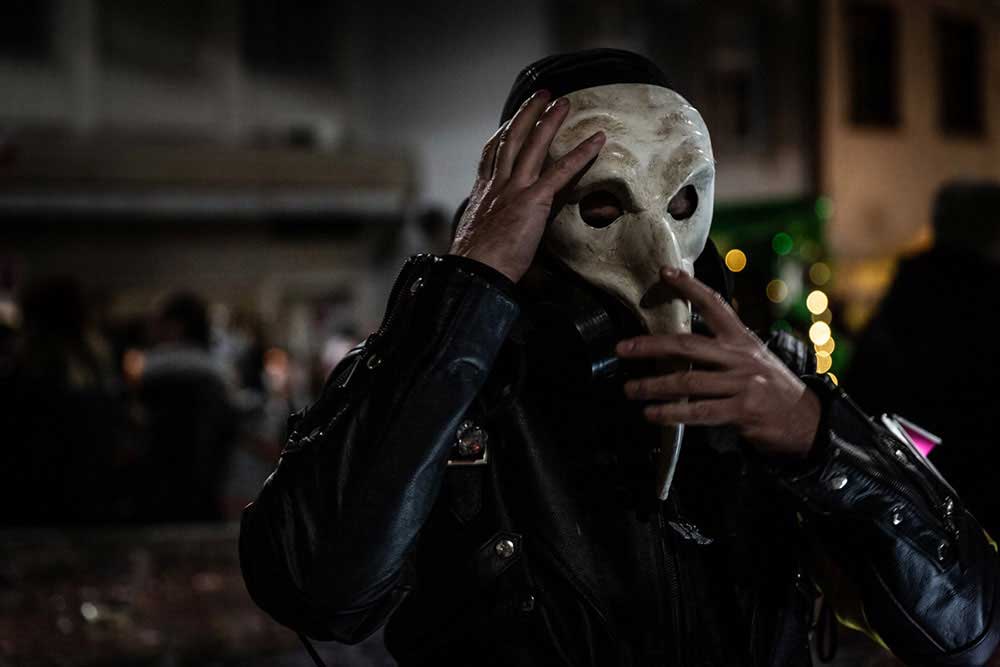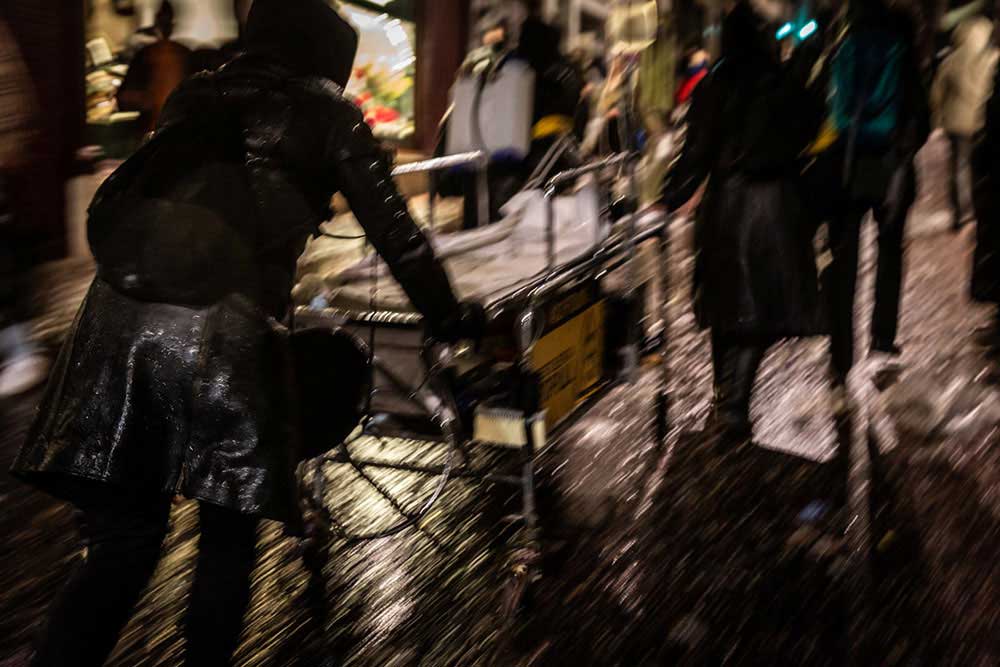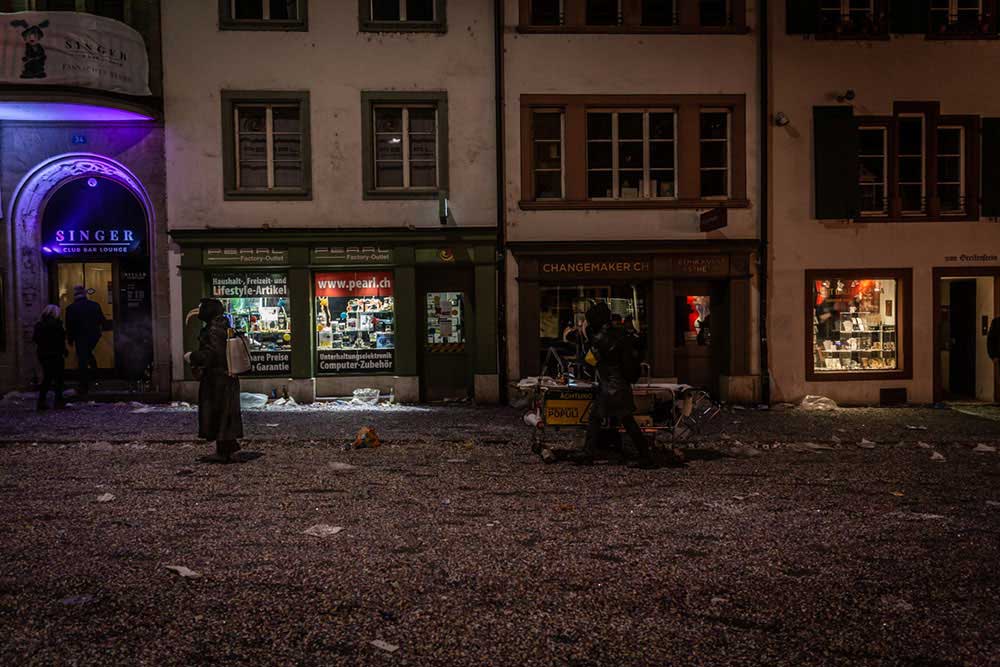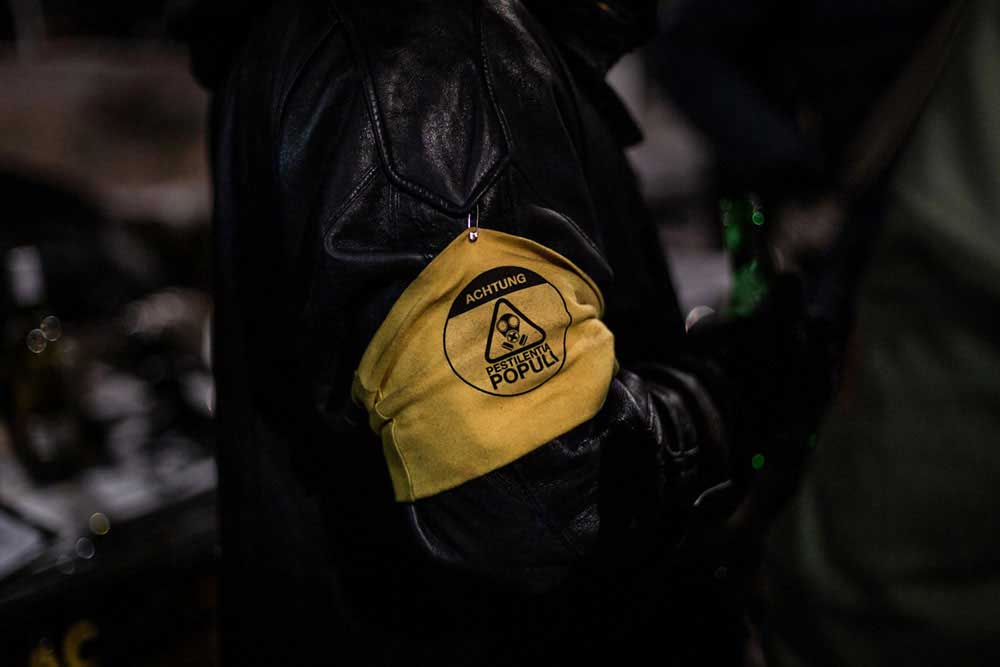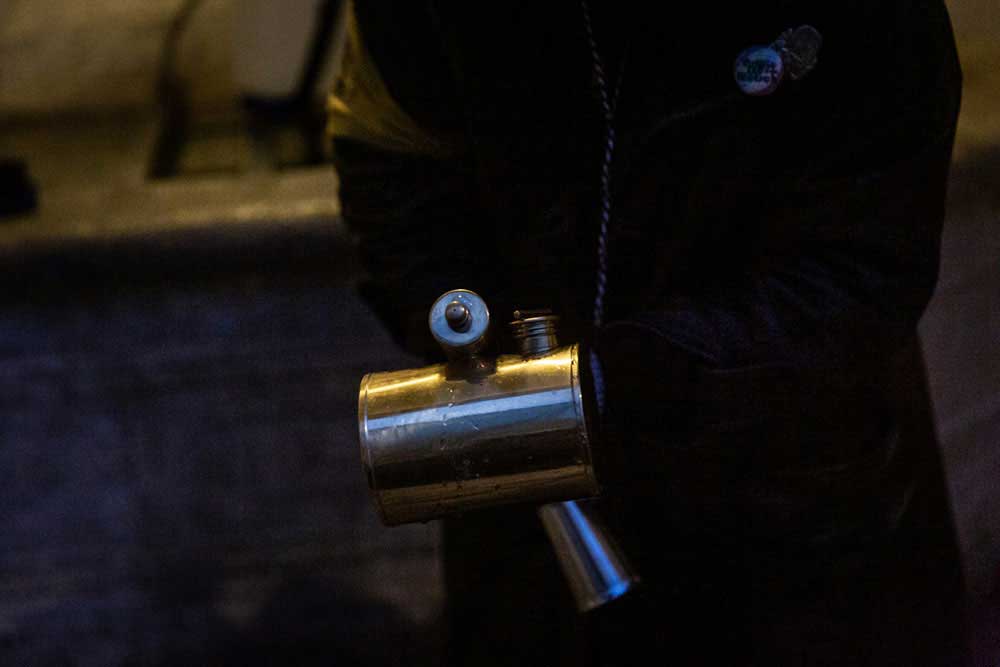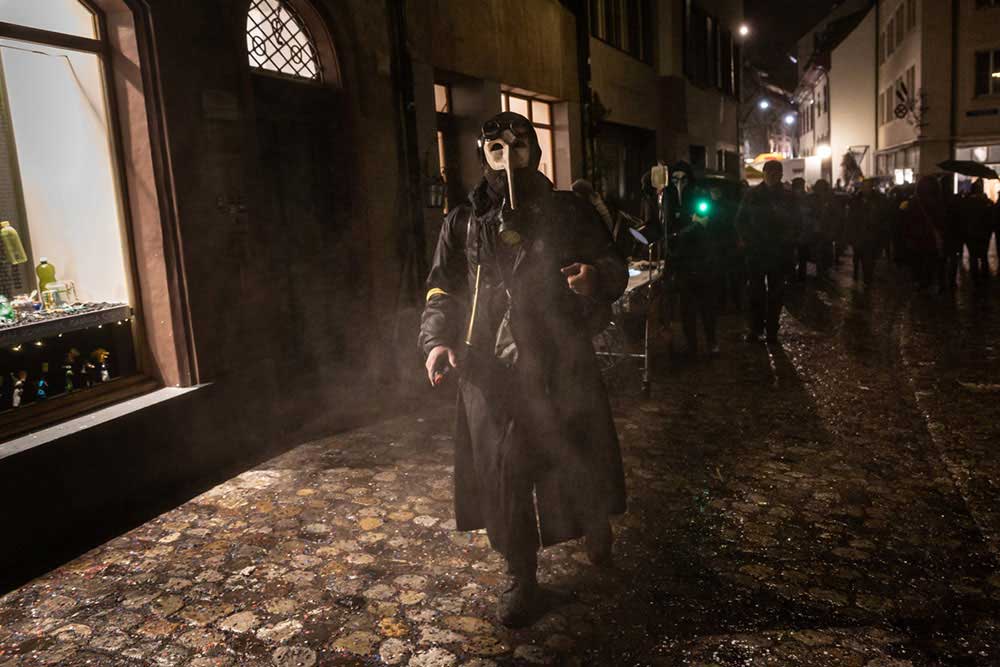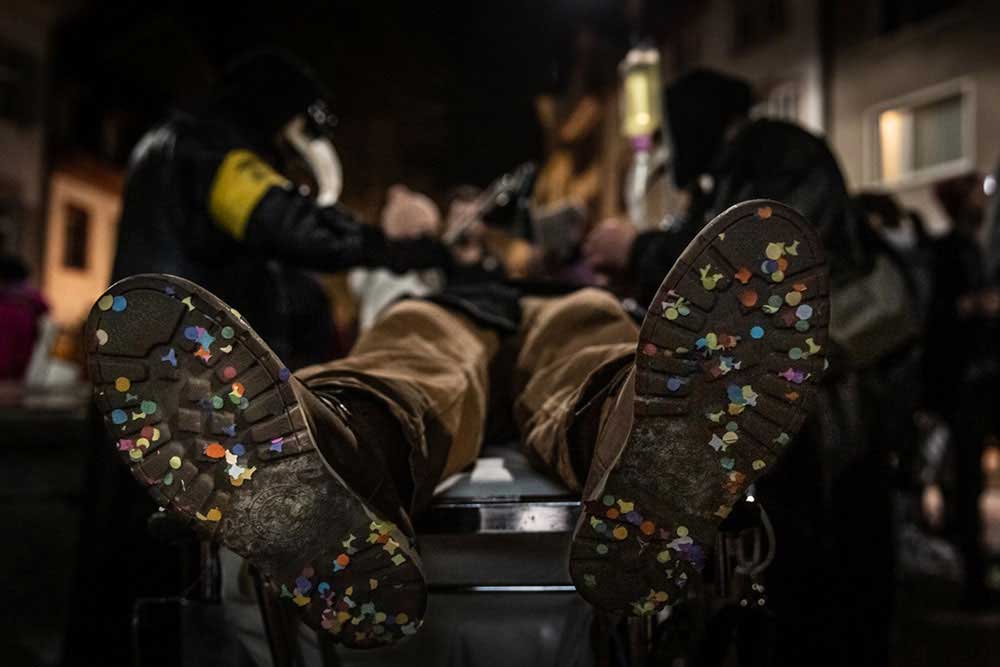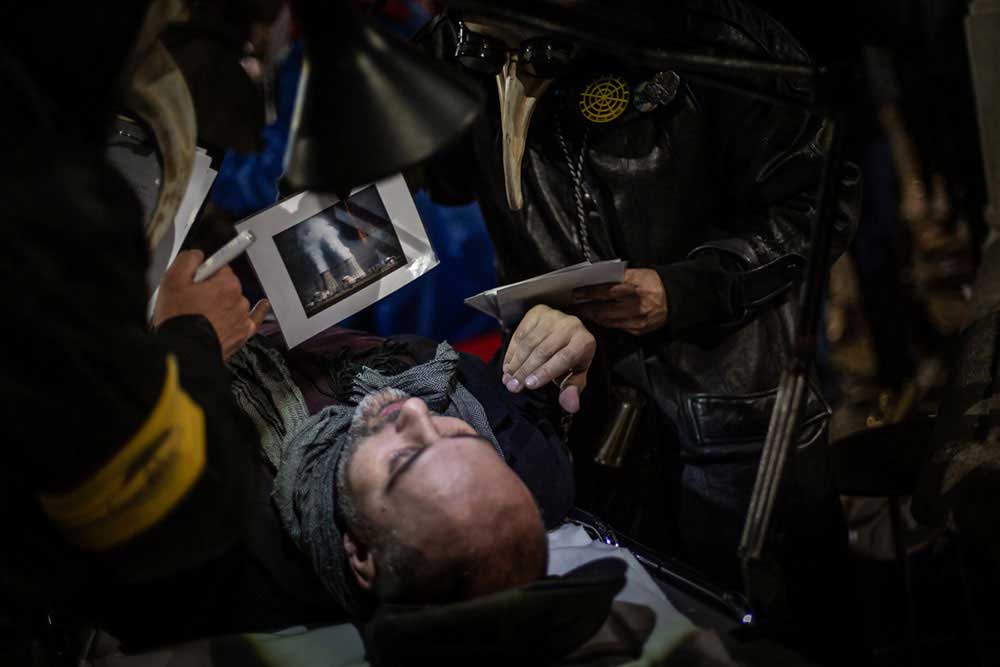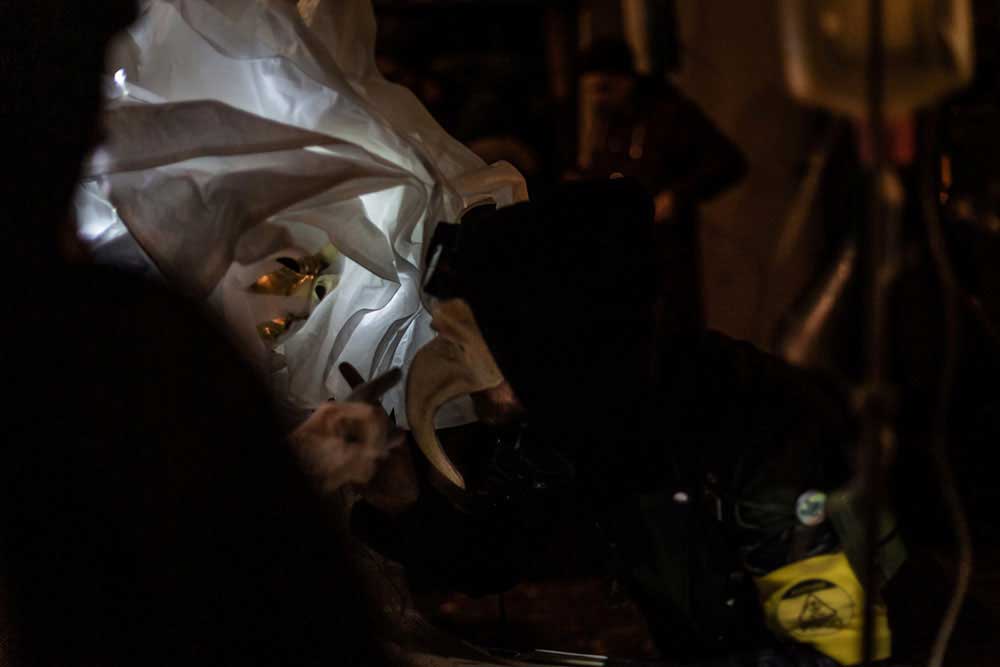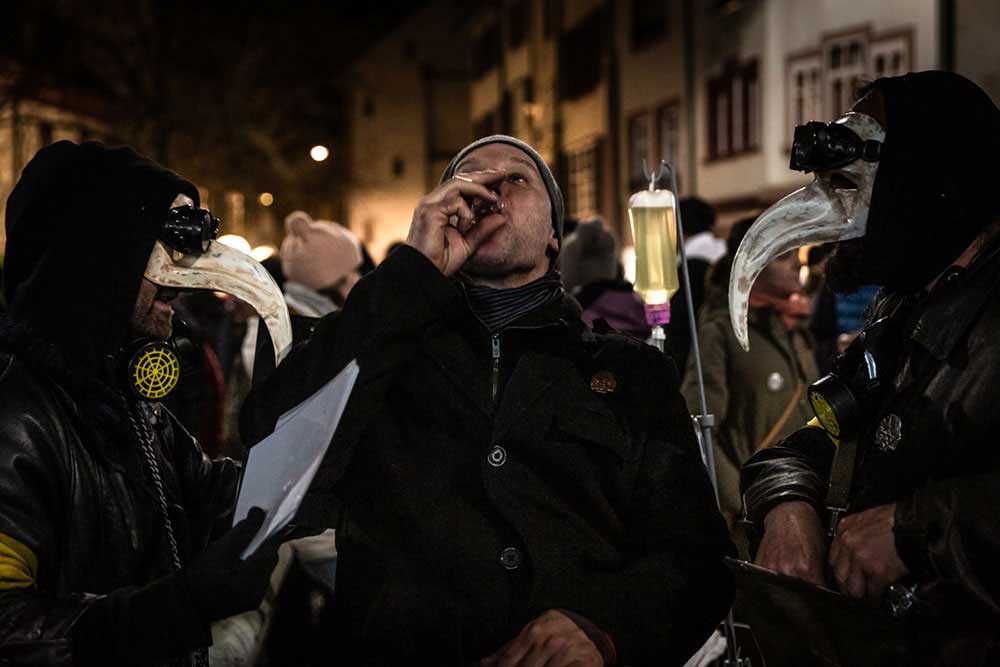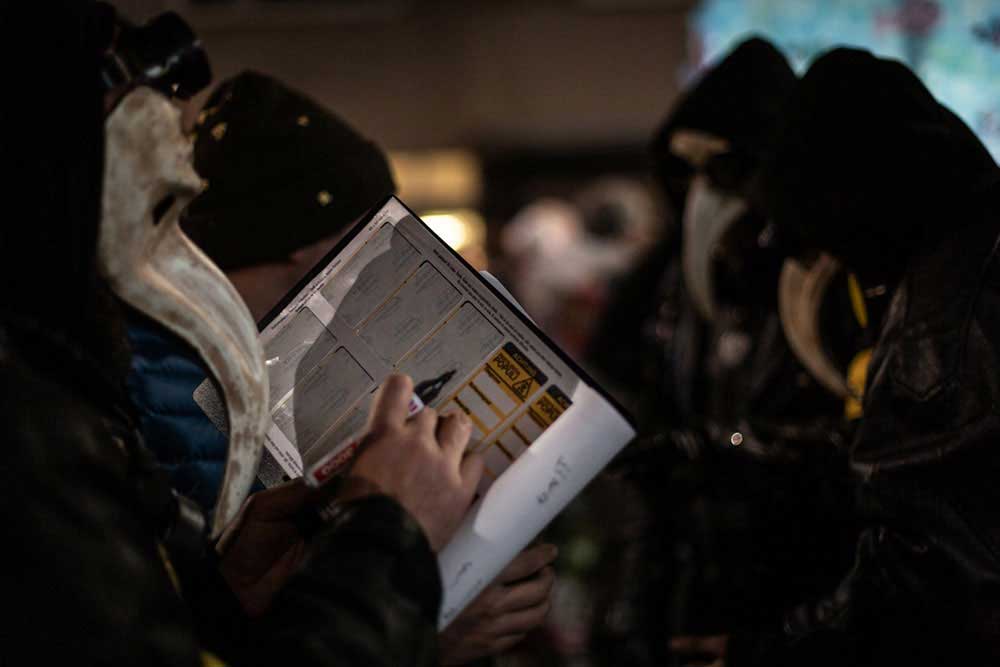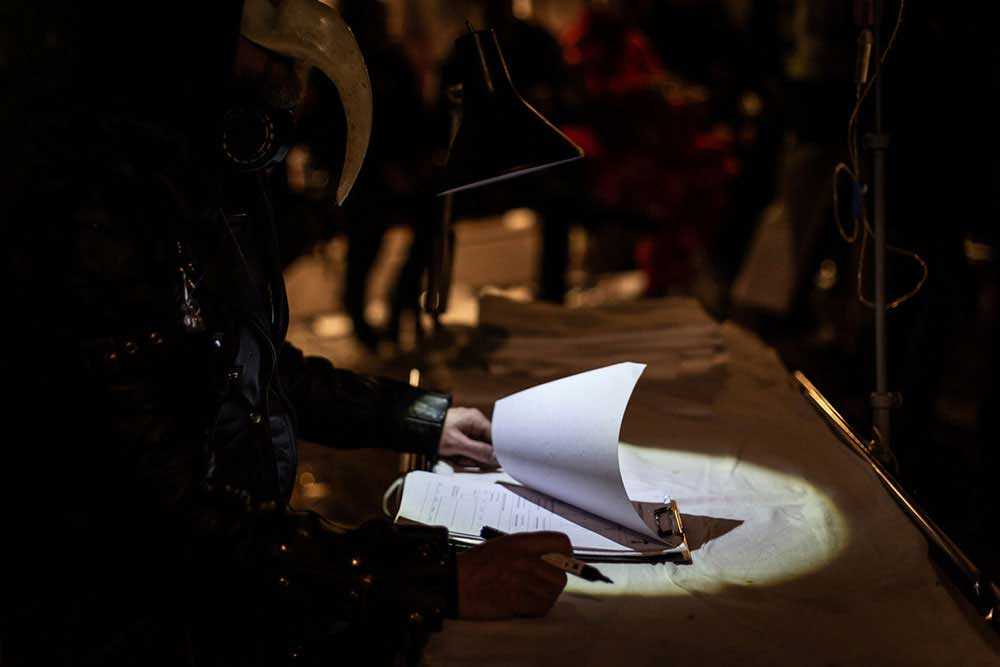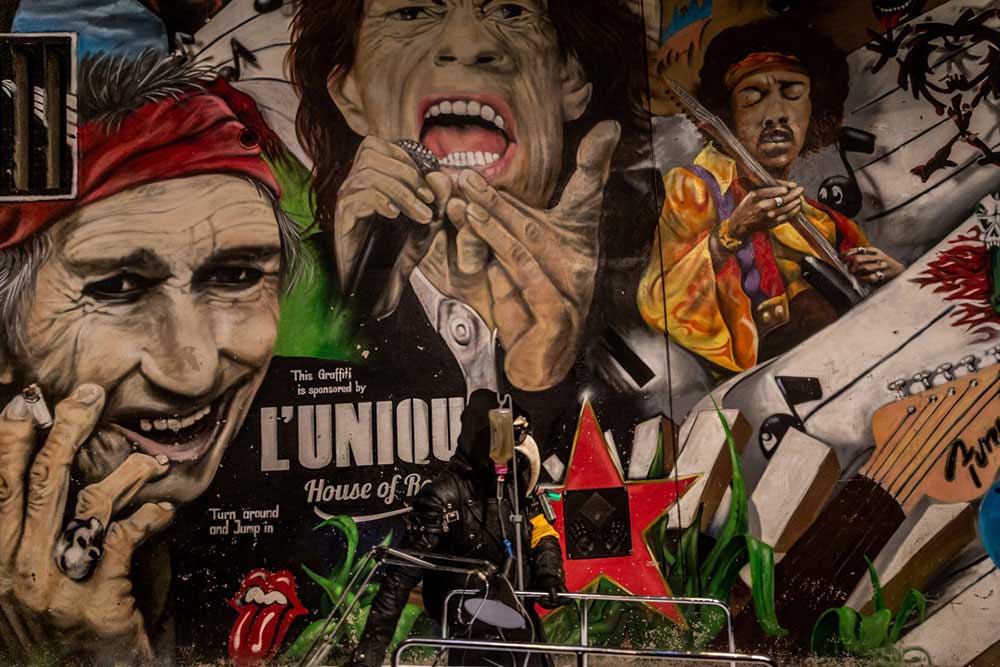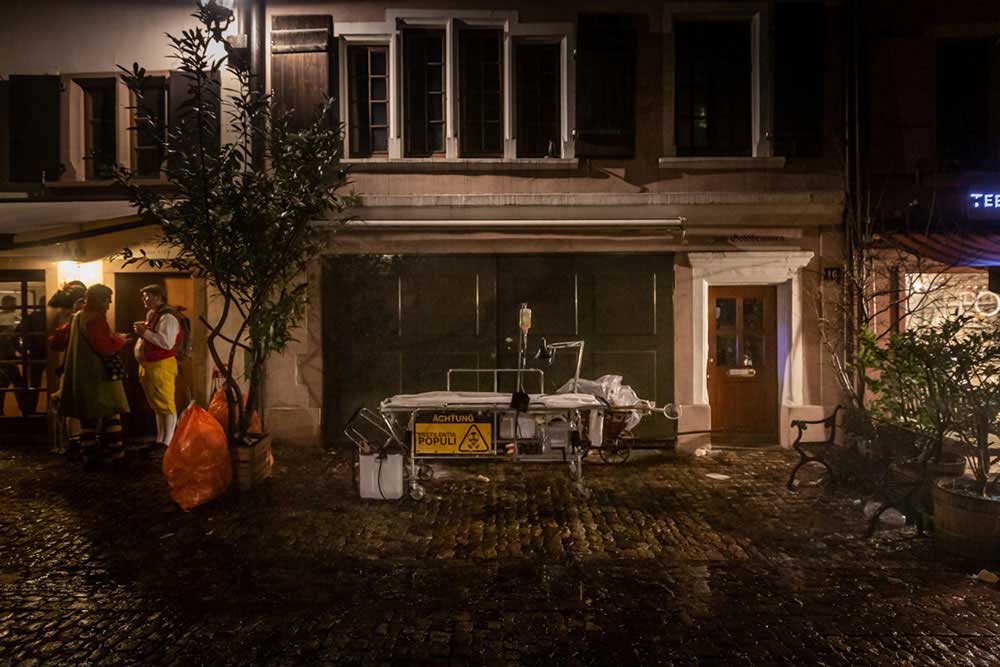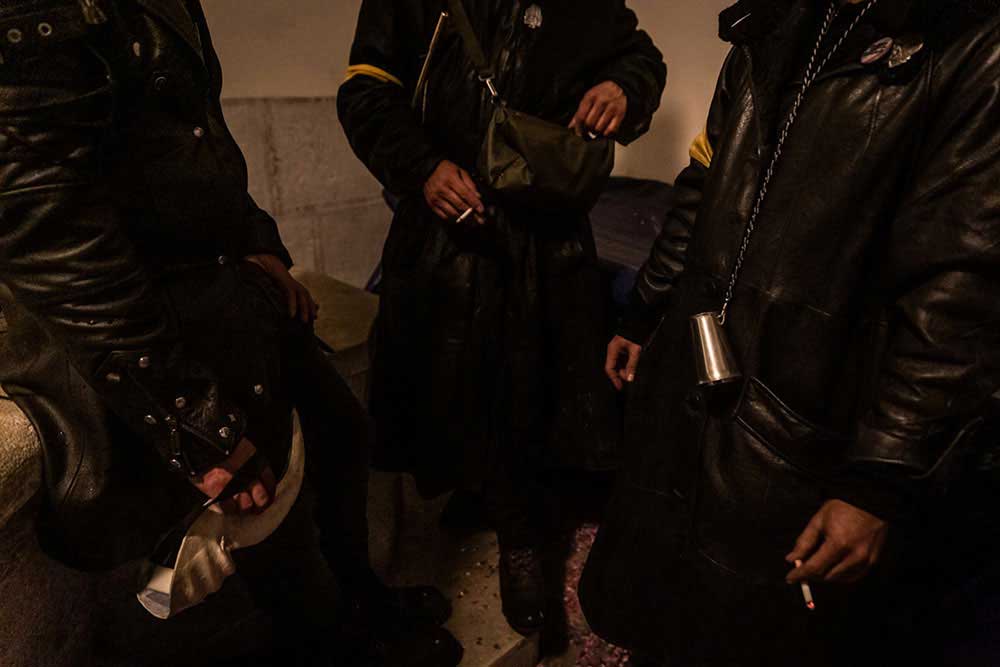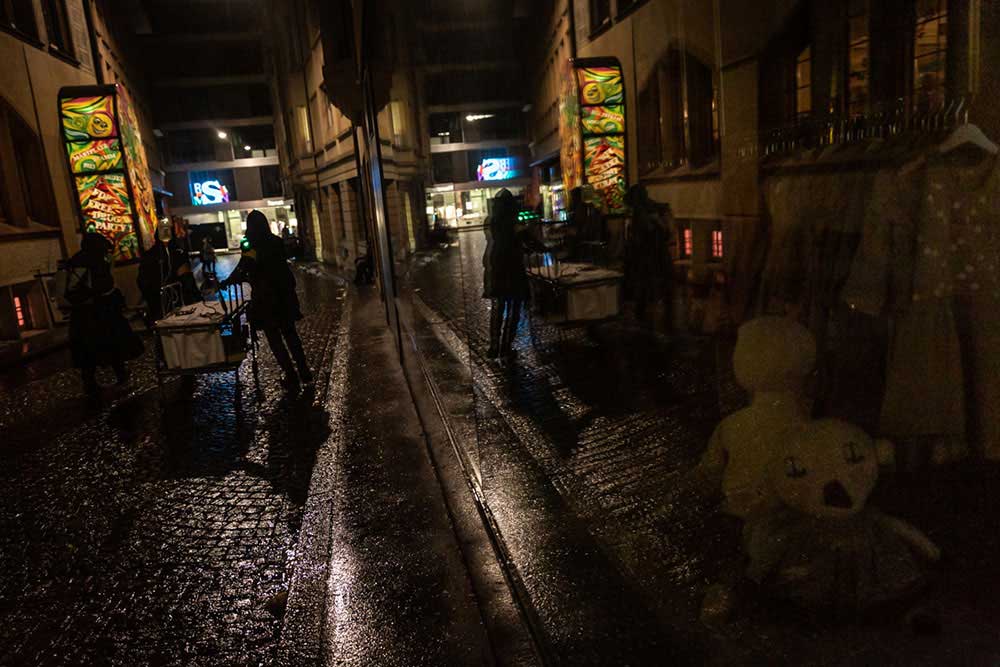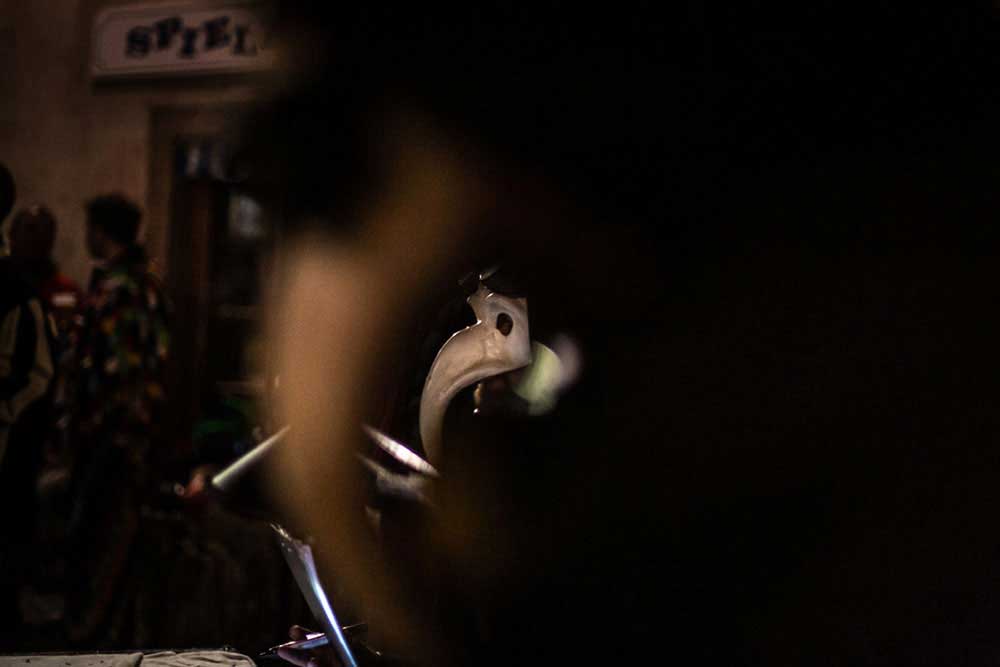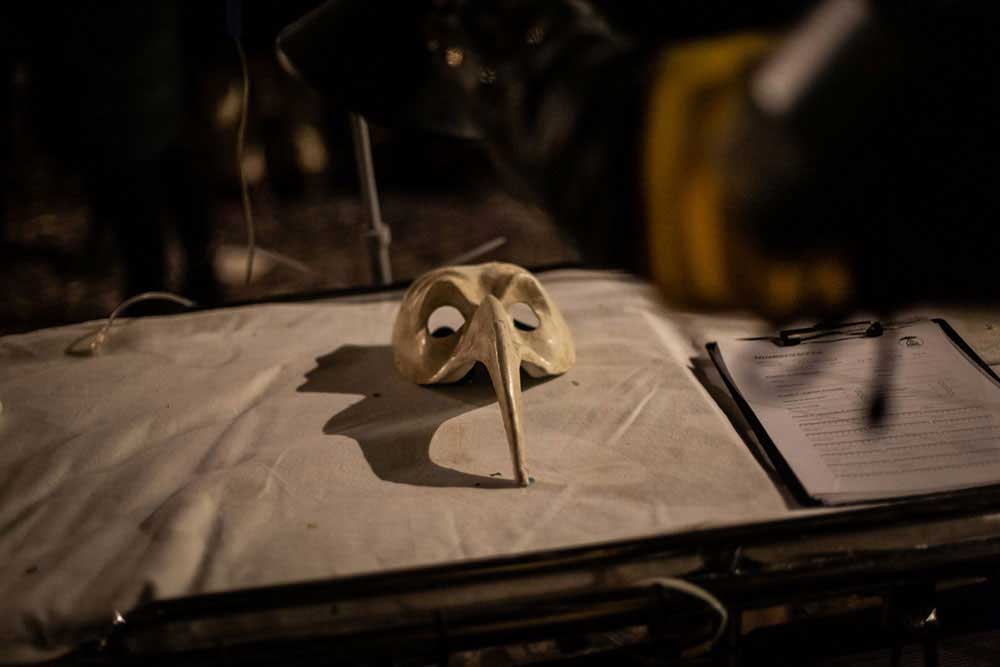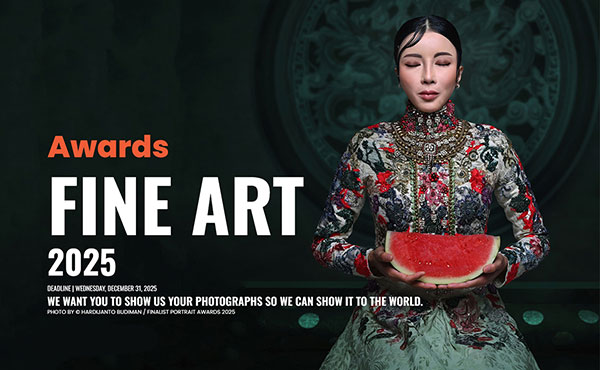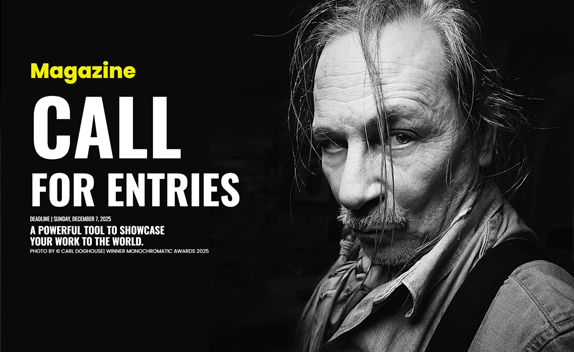The days of Fasnacht, the Basel Carnival – one of Europe’s oldest and best-loved carnivals – just ended. Dating back to 1376 and becoming UNESCO World Heritage only in 2017, Fasnacht offers “die drey scheenschte Dääg”, the “three best days” in the year, when the city goes structurally wild: from “Morgenstraich” (the morning parade, starting on Monday at 4 am in total darkness) to “Endstraich” (ending on Thursday at 4 am exactly 72 hours later), around 20,000 active participants with costumes and “Larven” (masks) celebrate the only protestant carnival in the world.
Together with music played by the “Cliques” (marching in groups through the city playing piccolo and drums) or “Guggemuusige” (brass and percussion bands), satire and politics are the other main topics of the carnival, either depicted on the marvelous hand-painted giant lanterns, sung by “Schnitzelbänke” (masked bards) in Basel dialect verses, or by individual theatrical groups making fun of society as well as local and international politics.
From the recent American history – the Trump presidency – to the European parties and movements driving the recent political events – Brexit, Erdogan, the Italian Lega, etc. – populism is well present at Fasnacht. Despite being consistently on the rise for the last two decades throughout Europe – with anti-migrant parties expected to make gains in the upcoming European elections – and in the land that has seen a series of victories of popular referendums pushed by the rightwing populist party Swiss People’s Party (SVP), populism is anyway regarded as something still to joke about. Or maybe even something more.
One group has thought that populism, like a spreading disease, could be cured.
Three guys, black-dressed, wearing a white plague doctor mask and a yellow armband, go around the city spraying fake pesticides on the infected population. On the streets covered with confetti, the doctors carry a hospital bed with a Latin sign on it: “Pestilentia Populi”. They stop in Rümelinsplatz, one of the oldest Basel squares. Carnival revellers are invited to pay a visit: some, slightly intimidated, accept. The patients lie down and illustrate their medical and political history; an infusion with wine reliefs the mental pain. Compelling photos are shown to each of them: Karl Marx, President Putin, nuclear reactors. Based on the responses, a specific diagnosis is given; a prescription anticipates the final alcoholic dose. The patient can go; the doctors leave to another square, looking for more patients in need of a cure. Populism was once a phenomenon of small fringes; today, like the plague, will need long time before it will be extirpated.
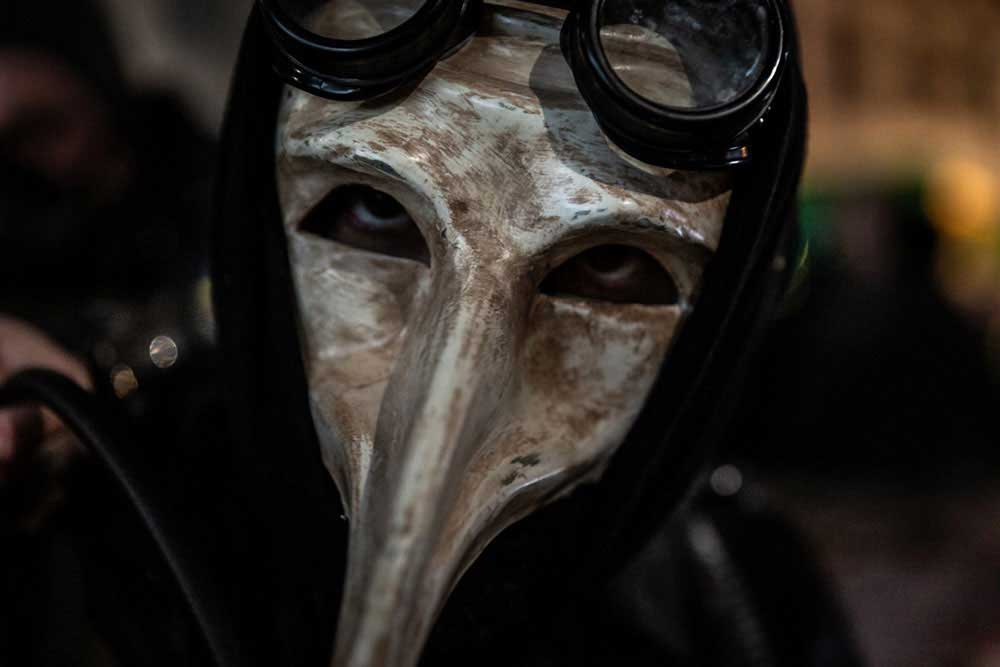
About Davide Germano
Born in Barletta, on the southeast coast of Italy, moved to Switzerland (by chance) when he was 24 years old. Started to pursue photography while working on his PhD in Life Sciences, loving the innate creativity and imagination of both science and photography. Self-taught artist who continually works on developing his unique perspective.
Performed solo and collective exhibition in Switzerland. Collaborating with local businesses and theaters, his initial works include travel photography shots. Over the years he has started to work on local and international projects about ethnical minorities and refugees as well as works about communities affected by environment and political changes. [Official Website]
